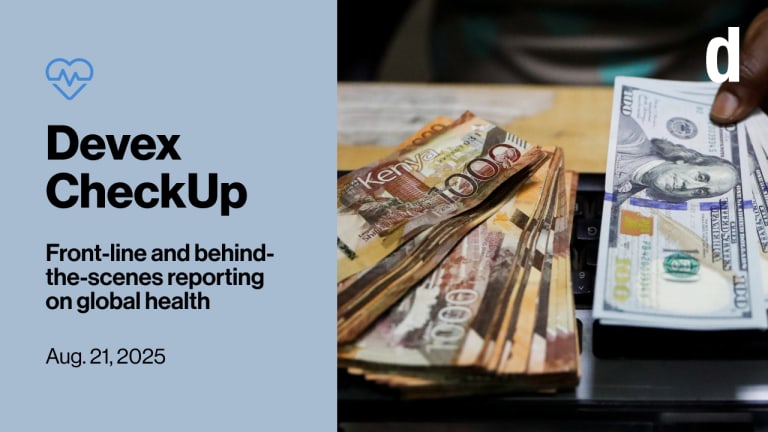
Adelaide, a midwife from Mozambique, delivered three children on March 14 of last year — the same day that Cyclone Idai, one of the worst tropical cyclones on record in the region, made landfall near the city of Beira. When speaking to the United Nations Population Fund, or UNFPA, she said that you have to be prepared for anything during a natural disaster — from the delivery room filling up with water to debris falling during labor.
Though some may not consider sexual and reproductive health services to be lifesaving, stories such as Adelaide’s remind us that even in times of crisis, sexual activity will continue, personal autonomy and choice will be compromised, pregnant women will deliver, and complications will arise.
Following Cyclones Idai and Kenneth in 2019, we saw that pregnant women were forced to give birth in some of the most horrific conditions. At the moment Cyclone Idai hit, we estimated that 75,000 cyclone-affected women were pregnant, with over 45,000 live births expected in the following six months. Life-threatening complications were potential risks for 7,000 of those births.
For those women, the availability of sexual and reproductive health care was a matter of life and death.
Globally, research shows that women and girls are the most vulnerable in a disaster. More than half of maternal deaths take place in countries impacted by humanitarian crisis and fragility.
This figure aggravates an already troubling picture in a country such as Mozambique, where a girl or woman’s risk of dying from pregnancy or childbirth is 1 in 67, while the global average is 1 in 190. The maternal mortality ratio is already high in the region, making the need for investments in sexual and reproductive health services — and family planning in particular — a priority, even when it may be overlooked in humanitarian contexts.
The unfortunate reality is that with climate change, natural disasters are likely to become more common and more severe, and as we’ve seen, women and girls will bear the brunt of these crises. Common occurrences such as flooding or strong winds are having consequences as devastating as a cyclone.
A few key lessons I’ve learned since Cyclone Idai are as follows:
To begin, while we call for an investment in the delivery of sexual and reproductive health services, it is critical that investment comes not just in the aftermath of the next cyclone or climate disaster, but in the lead-up, during the recovery, and in the long term. The government of Mozambique, for example, has taken active steps to improve family planning needs for girls and women, particularly through investments in school-based family planning and increased access to contraception and mobile clinics, among other initiatives.
We must remember that the discriminatory cultural and social norms and taboos that are heightened in a humanitarian crisis existed long before a cyclone, so it is only by addressing these challenges as part of our daily work that quality care and support can guarantee autonomy and choice for girls and women.
Secondly, we must adapt programming to make family planning services available even in the most hard-to-reach areas. While UNFPA invests in establishing temporary infrastructure, we work with the government to train nurses specializing in maternal and child health who travel extensively to provide sexual and reproductive health services to women and girls unable to access health facilities.
Lastly, it is imperative that we prioritize the collection, disaggregation, and use of data and evidence to better inform policy and investment. If we are to ensure that we are truly leaving no one behind — the overarching principle of the Sustainable Development Goals — we must also focus on the use of disaggregated data to understand which girls and women are bearing the greatest consequences when it comes to climate change impacts.
For example, studies show that adolescent pregnancy in Mozambique is significantly higher in rural areas — where 1 out of 5 girls give birth at 15-19 years of age — than in urban areas, where that ratio is 1 out of 11. They also show the rate of adolescent pregnancy is higher in rural areas within the lowest wealth quintile — 1 out of 5 girls — than in those within the highest quintile — 1 out of 10. It is imperative that this type of data aligns with the spread of services among girls and women who live in climate-vulnerable areas.
As Mozambique recovers from the devastating consequences of the cyclones and rebuilds itself in preparation for future climate change impacts, we must ensure that children are born by choice, not by chance, and that the health, well-being, and lives of girls and women are never compromised. We must also ensure that midwives like Adelaide are adequately trained and supported to respond to these acute needs in times of emergency.
Sexual and reproductive health, and family planning more specifically, is an investment — but one that yields significant rewards for the individual, community, and society. While the initial cost may seem high, we must remember that the health and economic consequences of not investing will be far greater.




